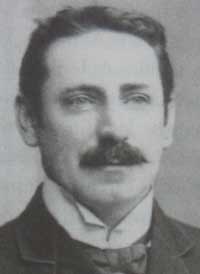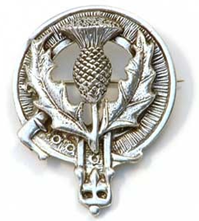|
Kelly the Boy from Killane
written by Patrick Joseph McCall, is a song about the exploits
of John Kelly (died c. 22 June 1798) who lived in Killanne in
the parish of Rathnure and was a United Irish leader who fought
in the Irish Rebellion of 1798.
While Kelly was obviously well known to rebel and loyalist alike
during the short duration of the Wexford rising, almost nothing
is known of him outside this time. He was one of the leaders of
the rebel victory at the Battle of Three Rocks which led to the
capture of Wexford town but was later seriously wounded while
leading a rebel column at the Battle of New Ross.
Kelly was under orders from the Wexford commander Bagenal Harvey
to attack the British outposts around New Ross but on no account
to attack the town itself is recorded. The rebels outnumbered
the British forces and so Harvey sent a messenger to give them
an opportunity to surrender. The messenger was shot while
carrying a white flag. This angered the rebels who began the
attack without receiving the official order from Harvey.
Kelly’s column of 800 men attacked and broke through Ross’s
“Three Bullet Gate” and proceeded into the town itself. After
initial success, they were eventually beaten back by British
troops and Kelly was wounded in the leg. He was moved to Wexford
to recuperate but after the fall of Wexford on 21 June was
dragged from his bed, tried and sentenced to death. He was
hanged on 25 June 1798 along with seven other rebel leaders on
Wexford bridge, after which his body was decapitated, the trunk
thrown into the River Slaney and the head kicked through the
streets before being set on display on a spike.
John Kelly the boy from Killane is now one of the most
celebrated names from the 1798 Irish Rebellion. However, little
was known of him until the Irish songwriter P J McCall wrote the
song that bears his name and made him famous. And although
McCall’s song sounds as though it came right out of the heat of
battle in 1798, it wasn’t written until 1911 – more than a
hundred years later.

Patrick Joseph
McCall (6
March 1861 – 8 March 1919) was an Irish songwriter and poet,
known mostly as the author of lyrics for popular ballads:
"Follow Me Up to Carlow", "The Boys of Wexford", "Boolavogue",
"The Lowlands Low" and "Kelly the Boy from Killanne". He was
born at 25 Patrick St, Dublin, Ireland, the son of John McCall,
a publican and grocer. He attended St. Joseph’s Monastery,
Harold's Cross; a Catholic University School. He spent his
summer holidays in Rathangan, County Wexford where he spent time
with local musicians and ballad singers. He also collected many
old Irish airs, but is probably best remembered for his
patriotic ballads.
He was assisted in
putting the Wexford ballads, dealing with the 1798 Rising, to
music by Arthur Warren Darley using traditional Irish airs.
Kelly the Boy from
Killane is very cleverly written and begins with the urgency of
a news bulletin as the singer demands
“What’s the
news, what’s the news…”
Straightaway we feel
the excitement and anxiety experienced at that time with people
trying to keep up with a rapidly changing situation during the
rebellion.
At the start of the
song the news is good because the rebel troops are preparing to
march the next morning, and the best news of all is that they
will be led by Kelly the boy from Killane.
We know that John
Kelly was from a prosperous merchant family but there are few
historical references to him. This allows McCall to use a little
poetic license in describing him. Kelly is portrayed as a giant
with gold curling hair. He is over seven feet tall if the song
is to be believed, and he looks like a king in command as he
rides ahead of his troops. It’s likely that this is not to be
taken literally but rather that McCall is trying to portray a
charismatic wartime leader.
The song retains the
feel of a news report in the third verse as we learn that rebels
have taken Enniscorthy and Wexford. The narrative then changes
to what is about to happen the next days as the rebels prepare
to cross the River Barrow at Ross. We hear that the overall
leader will be Bagenal Harvey but even so it is Kelly who
attracts the most praise as the “foremost of all in the grim gap
of death”. This description seems to be quite accurate because
when the rebels stormed Ross, Kelly was indeed at the head of
the fighting.
The final verse
changes from contemporary news report to a history lesson as we
learn that the rebels were defeated at Ross after being betrayed
by traitors and slaves. The song ends with a call to honor the
rebels who had died
“for the cause of long downtrodden man”. And the
greatest roll of honor is preserved for the dauntless Kelly,
“Leinster’s own
darling and pride”. |



